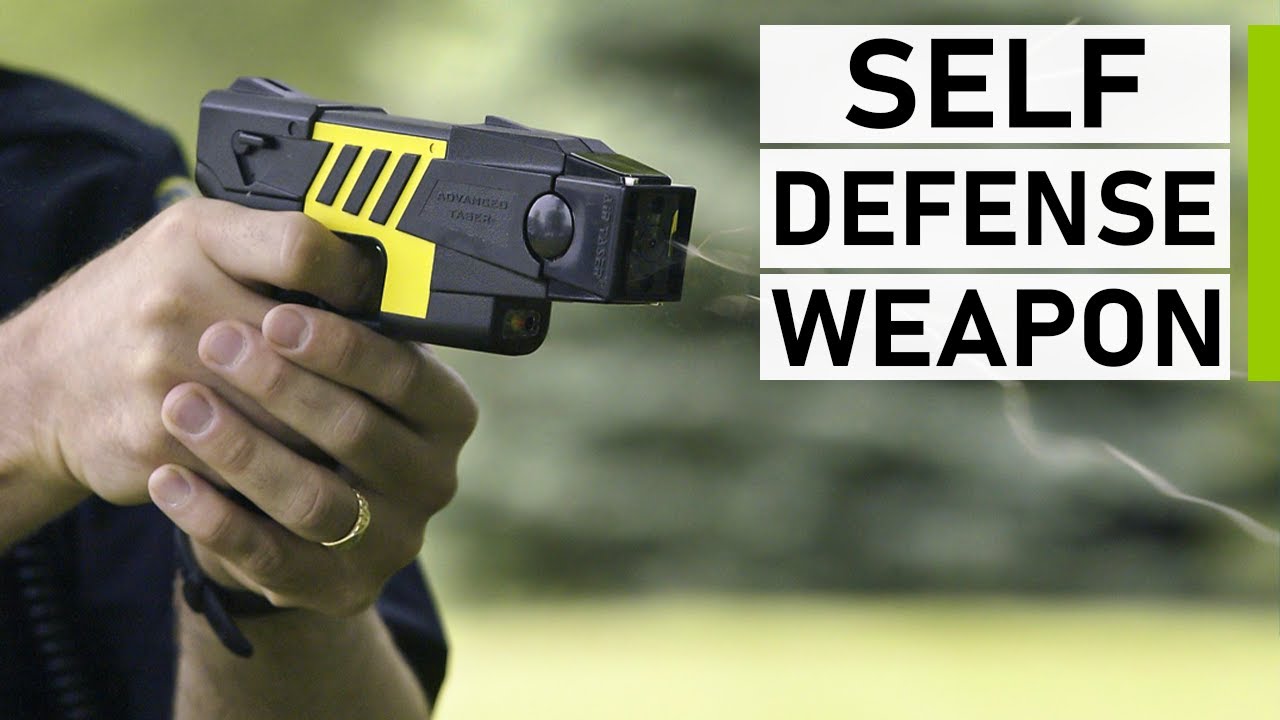Are Guns Effective for Self-defense?

What do you think? Are guns effective for self-defense? Let’s forward to learn.
The debate over whether guns are an effective tool for self-defense is a highly controversial topic. While some people argue that owning a gun can help protect them from harm, others believe that it only increases the risk of violence. In this blog post, we will take an in-depth look at the concept of defensive gun use, analyzing its frequency and effectiveness.
We will also explore the role of firearms in crime prevention, examining whether they act as deterrents or escalators of violent situations. Additionally, we will delve into the stance of the National Rifle Association (NRA) on self-defense and how it influences gun legislation.
Finally, we will discuss case studies of defensive gun use and examine the impact of gun ownership on personal safety as well as on communities. This blog aims to provide you with a comprehensive understanding of the debate surrounding guns and self-defense.
Understanding the Concept of Defensive Gun Use
Understanding defensive gun use involves using a firearm for self-protection against perceived threats, subject to legal debate and research. Nuanced comprehension of this varies by jurisdiction.
The Legal Context of Defensive Gun Use
The legal implications of defensive gun use involve self-defense laws, varying across states. The Castle Doctrine and Stand Your Ground laws are pertinent. Understanding these factors shapes perceptions of defensive gun use.
Public Perception on Defensive Gun Use
Public perceptions of defensive gun use are shaped by media representation and personal experiences, influenced by cultural and social norms. Understanding these viewpoints is crucial, reflecting varying attitudes based on demographic variables.
Analyzing the Frequency of Defensive Gun Use
Analyzing defensive gun use involves examining various research data with differing methodologies. The complexity of defensive gun use highlights the need for reliable data and a nuanced understanding for informed discussions.
DGU Statistics: A Closer Look
A holistic examination of DGU statistics is imperative for understanding self-defense firearm use dynamics. Detailed analysis reveals insights into the prevalence and interpretation of defensive gun uses, shedding light on this nuanced phenomenon.
Comparisons with Other Countries
Comparing defensive gun use globally offers valuable insights into cultural and legal differences. International perspectives enrich our understanding and discourse on defensive gun use, providing broader insights and a nuanced understanding of the phenomenon.
The Role of Firearms in Crime Prevention
Understanding the effectiveness of firearms in preventing crime requires a multifaceted approach, encompassing a range of perspectives. Firearms are often seen as a deterrent to criminal activities, although the relationship between firearms and crime prevention remains a subject of ongoing research.
Are Guns Effective Deterrents for Criminals?
Evaluating the effectiveness of guns as deterrents for criminals requires empirical analysis and an examination of criminological theories. Understanding law enforcement perspectives is crucial in assessing the deterrent value of guns. However, this remains a contentious and complex issue.
The Controversial Nature of this Debate
The discourse on firearms’ effectiveness in crime prevention is marked by controversy, demanding a balanced and thorough analysis. Engaging with these controversies enriches the understanding of the complex relationship between firearms and crime prevention. Check this article if you are curious to know more: https://bossfirearms.com/benchmade-everyday-carry/.
The NRA and Its Stance on Self-Defense
The NRA’s stance on self-defense reflects its position on Second Amendment rights and intersects with broader debates on gun rights and regulations. Examining the NRA’s advocacy for self-defense underscores its influential role, shaping the national discourse on gun ownership and self-protection.
The Influence of the NRA on Gun Legislation
The NRA’s lobbying significantly shapes US gun laws at federal and state levels, as well as influencing policy creation and amendment. Financial support of candidates advances pro-gun policies and sparks national debates on gun control and Second Amendment rights.
Critiques and Controversies Surrounding the NRA’s Stance
Critics claim the NRA’s opposition to gun control impedes reducing firearm-related violence. Controversies include prioritizing gun lobby over public safety, influencing national debates on comprehensive gun reform, and accountability of political engagements, fostering ethical and moral debates.
Case Studies of Defensive Gun Use
Real-life incidents shape the discourse on defensive gun use, highlighting effective firearm usage in self-protection. Detailed accounts offer insights into multifaceted self-defense scenarios, contributing to informed discussions on personal safety and gun ownership.
Instances Where Guns Prevented Crimes
Instances abound of firearms deterring criminal activities, reported widely, underscoring the nuanced impact of gun ownership in enhancing public safety and mitigating criminal behavior. Legally possessed guns have shown deterrent effects across a spectrum of criminal acts.
Instances Where Guns Escalated Situations
Instances of firearms exacerbating conflicts shed light on the risks associated with gun possession in certain scenarios. Documented incidents reveal how the introduction of a gun intensified confrontations, prompting critical examination of potential consequences and contributing to a comprehensive understanding of firearm-related dynamics: https://x-ringsupply.com/.
The Impact of Gun Ownership on Personal Safety
Assessing gun ownership’s impact on personal safety spans legal, social, and psychological dimensions. Individual perceptions and situational factors influence this relationship, reflecting diverse perspectives on self-defense. Evaluating gun ownership’s impact requires nuanced consideration of contextual influences.
The Risk of Accidents with Gun Ownership
The presence of a gun intensified confrontations or altercations, highlighting the potential dangers posed by mishandling or improper storage of firearms. Responsible firearm handling and safety measures are integral to promoting safe practices and injury prevention.
The Link between Gun Ownership and Suicide Rates
The association between gun ownership and suicide rates prompts discussions on suicide prevention strategies and firearm regulation. Research explores the impact of firearm availability on self-harm incidents, informing initiatives aimed at reducing self-inflicted firearm fatalities.
The Impact of Gun Violence on Communities
Gun violence has profound social, economic, and emotional impacts on communities, necessitating comprehensive responses to address its repercussions. These impacts extend beyond individual victims, affecting community well-being, resilience, and social cohesion. Community-based interventions are essential to address systemic challenges.
The Social and Economic Costs of Gun Violence
Quantifying the societal and economic burdens of gun violence illuminates far-reaching implications for public safety, well-being, and economic stability. Addressing these costs requires a multi-sectoral approach encompassing public health and law enforcement. Comprehensive understanding informs evidence-based strategies to mitigate its impact.
Are Guns More Often Used in Self-defense or Crime?
Research indicates that the use of guns for self-defense may outweigh their use in criminal acts. Defensive gun use seems to occur more frequently than offensive gun use, suggesting that guns are often used for protection rather than for criminal purposes. Data suggests that guns are more commonly used in self-defense than in the commission of crimes.
Conclusion
In conclusion, the effectiveness of guns for self-defense is a complex and controversial topic. While there are instances where guns have been used successfully to prevent crimes, there are also cases where their presence has escalated situations and led to tragic consequences. It is important to consider the legal context, public perception, and statistical data when evaluating the role of firearms in self-defense. Additionally, the influence of organizations like the NRA and their stance on self-defense cannot be overlooked.
Ultimately, the impact of gun ownership on personal safety and the broader community must be carefully assessed. We encourage you to share your thoughts and opinions on this issue in the comments below.











